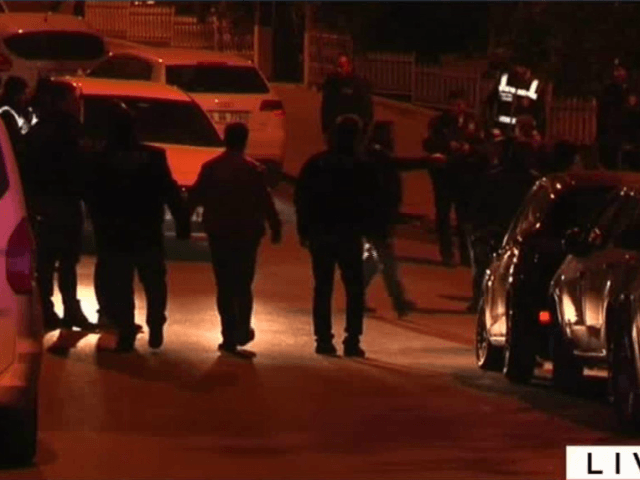The Turkish government continued its crackdown on criticism of “Operation Olive Branch,” Turkey’s invasion of Syria to attack Kurdish positions, by arresting 474 people for “promoting” the Kurdistan Workers’ Party of Turkey (PKK) and the Kurdish Democratic Union Party (PYD) of Syria.
These detentions were reported in the context of nationwide counter-terrorist operations by Turkish security forces, which included the seizure of guns and explosives used by the PKK, the destruction of several militant hideouts, a count of 25 militants “neutralized” (which could mean either captured or killed, as Hurriyet Daily News points out) and almost 3,000 seizures of drugs and other contraband materials.
Additionally, 568 people with alleged ties to what the Turkish government calls the Fethullah Terrorist Organization (FETO)—that is, followers of Muslim cleric Fethullah Gulen, who lives in the United States—were detained.
In other words, the Turkish government seeks to demonstrate there is no functional difference between the PKK—a violent separatist movement in Turkey recognized as terrorists by the U.S. government—and the PYD of Syria, which is the political wing of the YPG militia, a valued Western battlefield ally in the fight against the Islamic State. The Turkish government has long maintained the PYD is closely allied with the PKK.
The government further wishes these Kurdish groups to be seen as a threat on par with the Gulenists, blamed for masterminding the failed July 2016 coup against President Recep Tayyip Erdogan.
The Syrian Democratic Forces (SDF), an umbrella organization largely made up of YPG forces, is reportedly moving personnel to the Afrin region near Turkey’s border to contest the Turkish incursion. U.S. Secretary of Defense Jim Mattis called this a “distraction” from anti-ISIS operations in Syria on Sunday, estimating that Kurdish and Turkish forces each now control about 50 percent of the Afrin region.
Mattis also expressed sympathy for Turkey’s position, describing it as the “only NATO country with an active insurgency inside its own border.”
“They have a legitimate security concern, and we do not dismiss one bit of that, along that border with Syria. I mean, I don’t care whether you’re Israel or Lebanon, you’re Jordan, Iraq or Turkey, you have legitimate political, you have legitimate security concerns,” he said.
Over in the United Kingdom, the British Foreign Office is taking some heat from the Commons Foreign Affairs Committee for holding an “incoherent” position on the fate of the Syrian and Iraqi Kurds.
The Commons Foreign Affairs Committee issued a report casting serious doubt on Turkey’s claims of a strong linkage between the PKK and PYD, asking the Foreign Office to develop a clear public position on whether it finds the Turkish government’s allegations credible or not. The report also expressed concerns that the Turkey-Kurdish conflict in Afrin could widen into a new regional crisis, especially if the Syrian government also becomes involved.
It is not clear which side the Assad regime in Damascus would be on if it became overtly involved in the conflict. There are rumors Assad is covertly assisting the Kurds, or at least standing back and allowing them to move equipment and personnel through government-controlled territory into Afrin.
Assad’s assistance will likely remain modulated by his desire to see Turkey and the Kurds, along with Syrian fighters allied to either side, wear each other town and weaken their position in post-civil-war Syria. Damascus has no reason to welcome an invasion by the Turkish military, an embarrassing affront to its territorial sovereignty, and while the Syrian government tacitly cooperated against ISIS during the most turbulent years of the civil war, government forces have lately been bombing SDF positions and threatening to forcibly retake territory held by Kurdish militias.

COMMENTS
Please let us know if you're having issues with commenting.